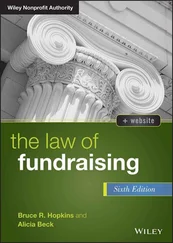(c) In none of these cases ought the difficulty of distinguishing man's words from God's words, or ideal truth from actual truth, to prevent our acceptance of the fact of inspiration; for in this very variety of the Bible, combined with the stimulus it gives to inquiry and the general plainness of its lessons, we have the very characteristics we should expect in a book whose authorship was divine.
The Scripture is a stream in which “the lamb may wade and the elephant may swim.”There is need both of literary sense and of spiritual insight to interpret it. This sense and this insight can be given only by the Spirit of Christ, the Holy Spirit, who inspired the various writings to witness of him in various ways, and who is present in the world to take of the things of Christ and show them to us ( Mat. 28:20 ; John 16:13, 14 ). In a subordinate sense the Holy Spirit inspires us to recognize inspiration in the Bible. In the sense here suggested we may assent to the words of Dr. Charles H. Parkhurst at the inauguration of William Adams Brown as Professor of Systematic Theology in the Union Theological Seminary, November 1, 1898—“Unfortunately we have condemned the word ‘inspiration’ to a particular and isolated field of divine operation, and it is a trespass upon current usage to employ it in the full urgency of its Scriptural intent in connection with work like your own or mine. But the word voices a reality that lies so close to the heart of the entire Christian matter that we can ill afford to relegate it to any single or technical function. Just as much to-day as back at the first beginnings of Christianity, those who would declare the truths of God must be inspired to behold the truths of God. … The only irresistible persuasiveness is that which is born of vision, and it is not vision to be able merely to describe what some seer has seen, though it were Moses or Paul that was the seer.”
10. Acknowledgment of the non-inspiration of Scripture teachers and their writings.
This charge rests mainly upon the misinterpretation of two particular passages:
(a) Acts 23:5 (“I wist not, brethren, that he was the high priest”) may be explained either as the language of indignant irony: “I would not recognize such a man as high priest”; or, more naturally, an actual confession of personal ignorance and fallibility, which does not affect the inspiration of any of Paul's final teachings or writings.
Of a more reprehensible sort was Peter's dissimulation at Antioch, or practical disavowal of his convictions by separating or withdrawing himself from the Gentile Christians ( Gal. 2:11–13 ). Here was no public teaching, but the influence of private example. But neither in this case, nor in that mentioned above, did God suffer the error to be a final one. Through the agency of Paul, the Holy Spirit set the matter right.
(b) 1 Cor. 7:12, 10 (“I, not the Lord”; “not I, but the Lord”). Here the contrast is not between the apostle inspired and the apostle uninspired, but between the apostle's words and an actual saying of our Lord, as in Mat. 5:32; 19:3–10; Mark 10:11; Luke 16:18 (Stanley on Corinthians). The expressions may be paraphrased:—“With regard to this matter no express command was given by Christ before his ascension. As one inspired by Christ, however, I give you my command.”
Meyer on 1 Cor. 7:10 —“Paul distinguishes, therefore, here and in verses 12, 25, not between his own and inspired commands, but between those which proceeded from his own (God-inspired) subjectivity and those which Christ himself supplied by his objective word.” “Paul knew from the living voice of tradition what commands Christ had given concerning divorce.” Or if it should be maintained that Paul here disclaims inspiration—a supposition contradicted by the following δοκῶ— “I think that I also have the Spirit of God” (verse 40) —it only proves a single exception to his inspiration, and since it is expressly mentioned, and mentioned only once, it implies the inspiration of all the rest of his writings. We might illustrate Paul's method, if this were the case, by the course of the New York Herald when it was first published. Other journals had stood by their own mistakes and had never been willing to acknowledge error. The Herald gained the confidence of the public by correcting every mistake of its reporters. The result was that, when there was no confession of error, the paper was regarded as absolutely trustworthy. So Paul's one acknowledgment of non-inspiration might imply that in all other cases his words had divine authority. On Authority in Religion, see Wilfred Ward, in Hibbert Journal, July, 1903:677–692.
Part IV. The Nature, Decrees, And Works Of God.
Table of Contents
Chapter I. The Attributes Of God.
Table of Contents
In contemplating the words and acts of God, as in contemplating the words and acts of individual men, we are compelled to assign uniform and permanent effects to uniform and permanent causes. Holy acts and words, we argue, must have their source in a principle of holiness; truthful acts and words, in a settled proclivity to truth; benevolent acts and words, in a benevolent disposition.
Moreover, these permanent and uniform sources of expression and action to which we have applied the terms principle, proclivity, disposition, since they exist harmoniously in the same person, must themselves inhere, and find their unity, in an underlying spiritual substance or reality of which they are the inseparable characteristics and partial manifestations.
Thus we are led naturally from the works to the attributes, and from the attributes to the essence, of God.
For all practical purposes we may use the words essence, substance, being, nature, as synonymous with each other. So, too, we may speak of attribute, quality, characteristic, principle, proclivity, disposition, as practically one. As, in cognizing matter, we pass from its effects in sensation to the qualities which produce the sensations, and then to the material substance to which the qualities belong; and as, in cognizing mind, we pass from its phenomena in thought and action to the faculties and dispositions which give rise to these phenomena, and then to the mental substance to which these faculties and dispositions belong; so, in cognizing God, we pass from his words and acts to his qualities or attributes, and then to the substance or essence to which these qualities or attributes belong.
The teacher in a Young Ladies' Seminary described substance as a cushion, into which the attributes as pins are stuck. But pins and cushion alike are substance—neither one is quality. The opposite error is illustrated from the experience of Abraham Lincoln on the Ohio River. “What is this transcendentalism that we hear so much about?”asked Mr. Lincoln. The answer came: “You see those swallows digging holes in yonder bank? Well, take away the bank from around those holes, and what is left is transcendentalism.” Substance is often represented as being thus transcendental. If such representations were correct, metaphysics would indeed be “that, of which those who listen understand nothing, and which he who speaks does not himself understand,”and the metaphysician would be the fox who ran into the hole and then pulled in the hole after him. Substance and attributes are correlates—neither one is possible without the other. There is no quality that does not qualify something; and there is no thing, either material or spiritual, that can be known or can exist without qualities to differentiate it from other things. In applying the categories of substance and attribute to God, we indulge in no merely curious speculation, but rather yield to the necessities of rational thought and show how we must think of God if we think at all. See Shedd, History of Doctrine, 1:240; Kahnis, Dogmatik, 3:172–188.
Читать дальше












